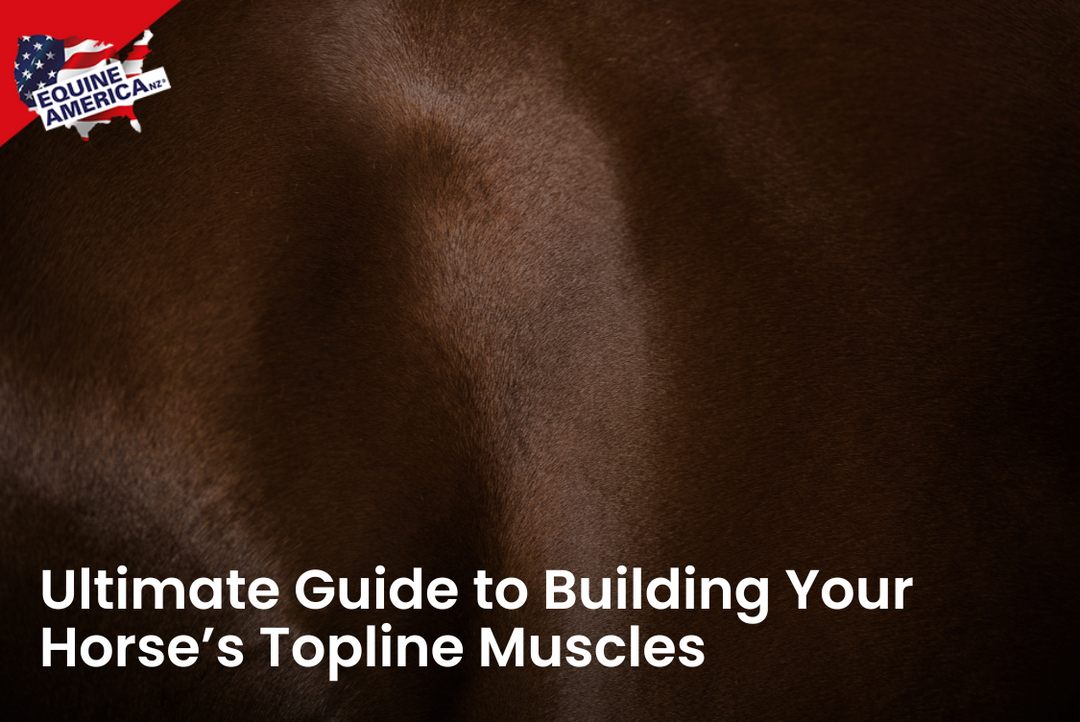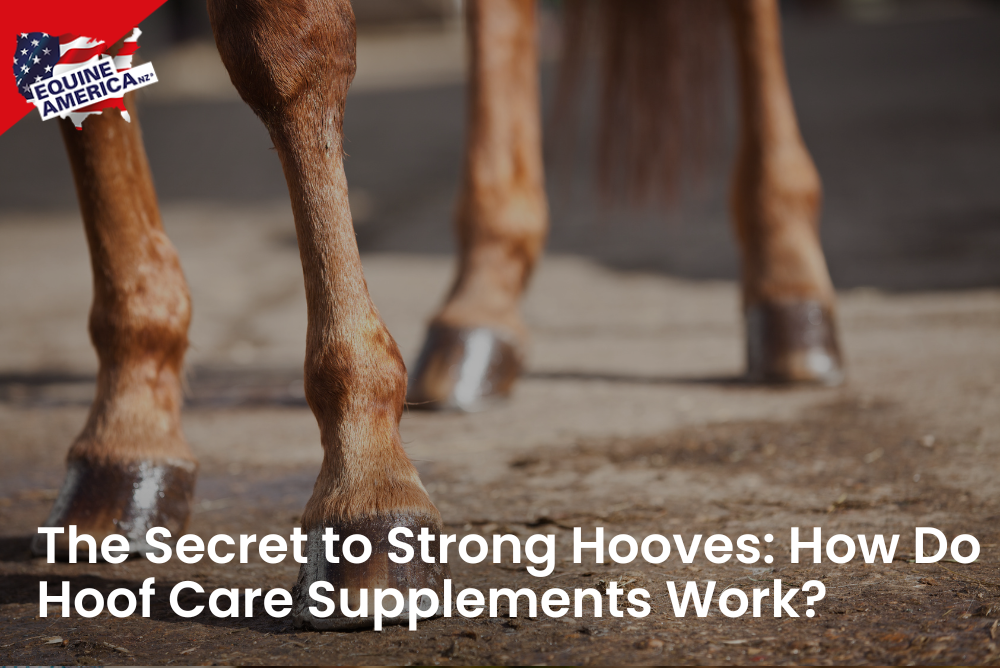In the realm of equine excellence, the well-being of a horse's joints is paramount. These magnificent creatures rely on their joints to execute precise and powerful movements, essential for success in various equestrian pursuits. Let's explore the structure and function of horse joints and understand why they hold such significance in equine performance.
The Structure and Function of Horse Joints
A horse's joints are intricate mechanisms that facilitate movement and provide support. They occur at points where two or more bones meet, enabling flexibility and weight-bearing. Within these joints, cartilage acts as a cushion, preventing bones from grinding against each other. Ligaments and tendons provide stability, and synovial fluid lubricates the joints, reducing friction. These components work in harmony, allowing horses to execute the graceful and robust movements required in their respective disciplines.
Benefits of Optimal Joint Health
The importance of maintaining healthy joints in horses cannot be overstated. Optimal joint health offers a multitude of benefits, including:
- Enhanced Performance: Healthy joints are the cornerstone of precise and agile movements, a prerequisite for success in equestrian activities.
- Pain Management: Maintaining joint health helps alleviate or prevent discomfort, ensuring that horses remain comfortable and willing to perform.
- Longevity: A horse with well-maintained joint health is more likely to enjoy a longer and more productive career.
- Overall Well-Being: Joint health contributes to a horse's overall quality of life, enabling them to lead happier and healthier lives.
Common Joint Issues in Horses
In the pursuit of excellence, it's essential to be aware of common joint issues that horses may encounter. These issues can impact a horse's quality of life and performance significantly. Here are some of the prevalent joint problems in horses:
- Osteoarthritis: Osteoarthritis is a degenerative joint disease that can afflict horses, particularly as they age. It leads to pain, stiffness, and reduced joint mobility.
- Joint Inflammation: Inflammation of the joints can cause discomfort and lameness in horses, affecting their ability to perform.
- Cartilage Damage: Damage to the protective cartilage within joints can lead to issues like bone-on-bone contact, causing pain and reduced mobility.
- Joint Infections: Infections within joints can have severe consequences, including joint deterioration and lameness.
Understanding these common joint issues is crucial for horse owners, trainers, and veterinarians. Recognising the signs and symptoms allows for early intervention and the implementation of strategies to support joint health and overall equine well-being.

Nutrition as a Foundation
Nutrition forms the foundation of overall equine health, including joint well-being. A balanced and nutrient-rich diet is essential for horses to thrive and maintain optimal performance. Let's delve into the fundamental role of nutrition in supporting the joints and the overall well-being of our equine companions.
Key Nutrients for Joint Health
Several key nutrients play a vital role in maintaining healthy joints in horses. These include:
- Omega-3 Fatty Acids: Omega-3 fatty acids have anti-inflammatory properties that can help reduce joint inflammation and promote joint health.
- Glucosamine: Glucosamine is a natural compound found in the body that supports cartilage health and may help in the prevention of joint degeneration.
- Chondroitin: Chondroitin is another essential component of cartilage that aids in maintaining the structure and function of joints.
- Antioxidants: Antioxidants like vitamin C and E help protect the joints from oxidative stress and inflammation.
Diet and Inflammation
Diet plays a crucial role in influencing inflammation within a horse's body, which can impact joint health. An imbalanced diet or one that is lacking in essential nutrients can contribute to inflammation. This inflammation can affect the joints, leading to discomfort and reduced mobility. Therefore, it's vital to provide a diet that is not only nutritionally complete but also anti-inflammatory in nature.
Optimising Diet for Joint Health
Balancing a horse's diet to support joint health involves several key considerations. Here are some steps to optimise their diet:
- Forage Quality: High-quality forage is a fundamental component of a horse's diet. Providing nutritious pasture and hay is essential for overall health and joint support.
- Balanced Nutrient Intake: Ensure your horse receives a well-rounded diet that includes the essential nutrients required for joint health. This may involve supplementation to bridge any nutritional gaps.
- Anti-Inflammatory Diet: Incorporate foods that have natural anti-inflammatory properties, such as omega-3 fatty acids, to help reduce inflammation within the body.
- Hydration: Adequate water intake is essential to maintain joint lubrication and overall health.
Supplements for Joint Health
In the pursuit of optimal joint health for your horse, supplements can play a valuable role. They offer additional support to ensure that your horse's joints remain in peak condition. However, it's essential to understand the advantages and considerations when using supplements in your equine companion's diet.
The Role of Supplements
Supplements are designed to provide a concentrated source of essential nutrients that support joint health. They can be particularly beneficial for horses with specific joint issues or those engaged in high-impact activities. Here are some advantages of using supplements for joint health:
- Targeted Support: Supplements are formulated to deliver key nutrients required for joint function, providing a more direct and concentrated approach.
- Convenience: Supplements offer a convenient way to ensure your horse receives the necessary nutrients without the need for extensive dietary adjustments.
- Additional Protection: For horses with a history of joint problems or those involved in physically demanding disciplines, supplements offer added protection against wear and tear on the joints.
Considerations and Warnings
While supplements can offer many benefits, it's crucial to approach their use with care. Consider the following when incorporating supplements into your horse's diet:
- Consultation: Before introducing any new supplement, consult with a qualified equine veterinarian. They can provide guidance on the most suitable options for your horse's specific needs.
- Quality Matters: Choose supplements from reputable sources like Equine America NZ to ensure quality and efficacy.
- Contraindications: Be aware of potential interactions between supplements and other medications your horse may be taking. Some supplements may not be suitable for horses with certain medical conditions.
- Monitor Effectiveness: Regularly assess the effectiveness of the supplement by observing your horse's mobility and overall well-being. If you notice any adverse reactions, consult your veterinarian.
Final Thoughts
In the realm of equine care, the importance of joint health cannot be overstated. A horse's joints are the very foundation upon which their grace, power, and performance stand. Understanding their structure and function, as well as recognising the benefits of optimal joint health, is essential for every horse owner, trainer, and enthusiast.
If you're seeking high-quality horse supplements, we invite you to explore the range of products offered by Equine America NZ. Your horse's well-being and performance deserve nothing but the best.
Please give us a call at Equine America NZ today at 0800 440 888 to learn more or leave an enquiry.




